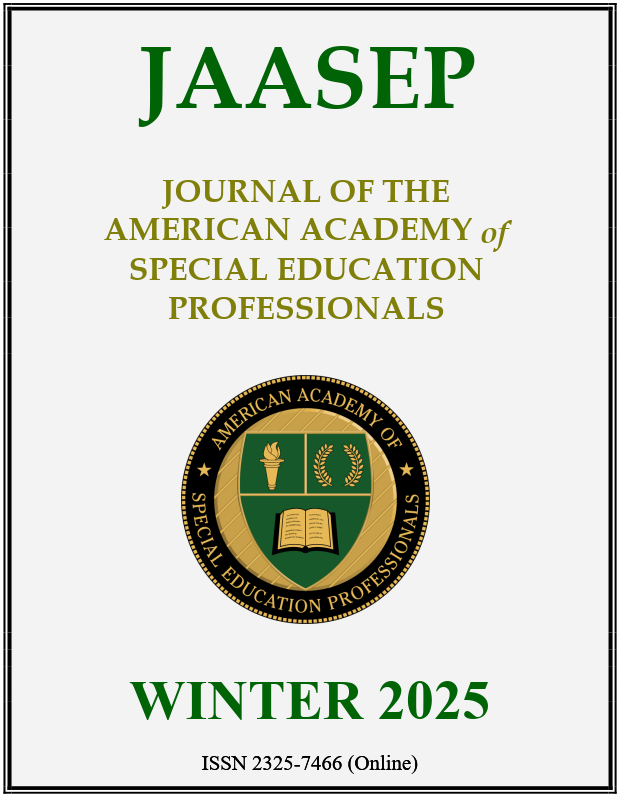An Exploration of Culturally and Linguistically Diverse Scholars’ Doctoral Journey: An Autoethnographic Case Study
Bourdieu, P. (1977). Reproduction in education, society, culture. Sage.
Chao, M. M, Okazaki, S., & Hong, Y. Y. (2011). The quest for multicultural competence: Challenges and lessons learned from clinical and organizational research. Social and Personality Psychology Compass, 5(5), 263-274. https://doi.org/10.1111/j.1751-9004.2011.00350.x DOI: https://doi.org/10.1111/j.1751-9004.2011.00350.x
Cooper, R., & Lilyea, B. (2022). I'm interested in autoethnography, but how do I do it? The Qualitative Report, 27(1), 197-208. https://doi.org/10.46743/2160-3715/2022.5288 DOI: https://doi.org/10.46743/2160-3715/2022.5288
Creswell, J. (2013). Qualitative inquiry and research design: Choosing among five approaches (2nd ed.). Sage.
Crumb, L., Haskins, N., Dean, L., & Avent Harris, J. (2020). Illuminating social-class identity: The persistence of working-class African American women doctoral students. Journal of Diversity in Higher Education, 13(3), 215-227. https://doi.org/10.1037/dhe0000109 DOI: https://doi.org/10.1037/dhe0000109
Cypress, B. S. (2017). Rigor or reliability and validity in qualitative research: Perspectives, strategies, reconceptualization, and recommendations. Dimension of Critical Care Nursing, 36(4), 253-263. https://doi.org/10.1097/DCC.0000000000000253 DOI: https://doi.org/10.1097/DCC.0000000000000253
Ellis, E. M. (2001). The impact of race and gender on graduate school socialization, satisfaction with doctoral study, and commitment to degree completion. Western Journal of Black Studies, 25(1), 30-45. Retrieved from http://ezproxy.utpb.edu/login?url=https://www.proquest.com/scholarly-journals/impact-race-gender-on-graduate-school/docview/200355246/se-2
Engle, J., & Tinto, V. (2008). Moving beyond access: College success for low-income, first-generation students. Pell Institute for the Study of Opportunity in Higher Education. Retrieved from https://eric.ed.gov/?id=ED504448
Fischer, E. M .J. (2007). Settling into campus life: Differences by race/ethnicity in college involvement and outcomes. The Journal of Higher Education, 78(2), 125-161. https://doi.org/10.1080/00221546.2007.11780871 DOI: https://doi.org/10.1080/00221546.2007.11780871
Gardner, S. K. (2013). The challenges of first-generation doctoral students. New Directions for Higher Education, 2013(163), 43-54. https://doi.org/10.1002/he.20064 DOI: https://doi.org/10.1002/he.20064
Hansen, N. D., Pepitone-Arreola-Rockwell, F., & Greene, A. F. (2000). Multicultural competence: Criteria and case examples. Professional Psychology: Research and Practice, 31(6), 652-660. https://doi.org/10.1037/0735-7028.31.6.652 DOI: https://doi.org/10.1037//0735-7028.31.6.652
Higher Education Act of 1965, 20 U.S.C. § 402A
Jairam, D., & Kahl Jr, D. H. (2012). Navigating the doctoral experience: The role of social support in successful degree completion. International Journal of Doctoral Studies, 7, 311–329. https://doi.org/10.28945/1700 DOI: https://doi.org/10.28945/1700
Lincoln, Y. S. & Guba, E. G. (1985). Naturalistic inquiry. Sage. DOI: https://doi.org/10.1016/0147-1767(85)90062-8
Nettles, M. T., & Millett, C. M. (2006). Three magic letters: Getting to Ph. D. JHU Press. DOI: https://doi.org/10.56021/9780801882326
Nettles, M., Thoeny, A., & Gosman, E. (1986). Comparative and predictive analyses of Black and White students’ college achievement and experiences. Journal of Higher Education, 57(3), 289–318. https://doi.org/10.1080/00221546.1986.11778772 DOI: https://doi.org/10.1080/00221546.1986.11778772
Schuyler, S. W., Childs, J. R., & Poynton, T. A. (2021). Promoting success for first-generation students of color: The importance of academic, transitional adjustment, and mental health supports. Journal of College Access, 6(1), 12-25. Retrieved from https://eric.ed.gov/?id=EJ1313619
Shotton, H. J. (2017). “I thought you’d call her white feather”: Native women and racial microaggressions in doctoral education. Journal of American Indian Education, 56(1), 32-54. https://doi.org/10.5749/jamerindieduc.56.1.0032 DOI: https://doi.org/10.1353/jaie.2017.a798929
Squire, D. D., & McCann, K. (2018). Women of color critical worldviews constructing spaces of resistance in education doctoral programs. Journal of College Student Development, 59J(4), 404–420. https://doi.org/10.1353/csd.2018.0039 DOI: https://doi.org/10.1353/csd.2018.0039
Stahl, N. A., & King, J. R. (2020). Expanding approaches for research: Understanding and using trustworthiness in qualitative research. Journal of Developmental Education, 44(1), 26-28. https://www.jstor.org/stable/45381095
Sue, D. W. (2007). Racial microaggressions in everyday life: Implications for clinical practice. American Psychologist, 62(4), 271-286. https://doi.org/10.1037/0003-066X.62.4.271 DOI: https://doi.org/10.1037/0003-066X.62.4.271
Tinto, V. (1993). Leaving college: Rethinking the causes and cures of student attrition (2nd ed.). University of Chicago Press. DOI: https://doi.org/10.7208/chicago/9780226922461.001.0001
Truong, K. A., Museus, S. D., & McGuire, K. M. (2016). Vicarious racism: A qualitative analysis of experiences with secondhand racism in graduate education. International Journal of Qualitative Studies in Education, 29(2), 224-247. http://dx.doi.org/10.1080/09518398.2015.1023234 DOI: https://doi.org/10.1080/09518398.2015.1023234
National Center for Science and Engineering Statistics (NCSES). (2020). Survey of Earned Doctorates. Retrieved July 10, 2023 from https://ncses.nsf.gov/pubs/nsf21308/report
Vasil, M, & McCall, J. M. (2018). The perspectives of two first-generation college students pursuing doctoral degrees in music education. Journal of Music Teacher Education, 27(2), 67-81. https://doi.org/10.1177/1057083717717464 DOI: https://doi.org/10.1177/1057083717717464
Vaishnav. S. (2021). Using photovoice to explore racial microaggressions experienced by doctoral students of color. Journal of Counselor Preparation and Supervision, 14(2). Retrieved from https://digitalcommons.sacredheart.edu/jcps/vol14/iss2/6
Washburn-Moses, L. (2007). Minority students’ perceptions of their doctoral programs in special education. Journal of Teacher Education, 58(5), 456-469. https://doi.org/10.1177/0022487107307948 DOI: https://doi.org/10.1177/0022487107307948
Wilder, J., Jones, T. B., & Osborne-Lampkin, L. (2013). A profile of Black women in the 21st century academy: Still learning from the “outsider-Within”. Journal of Research Initiatives, 1(1), 27-38. Retrieved from https://digitalcommons.uncfsu.edu/jri/vol1/iss1/5/
Williams, K. B. (2000). Perceptions of social support in doctoral programs among minority students. Psychological Reports, 86(3), 1003–1010. https://doi.org/10.2466/pr0.2000.86.3.1003 DOI: https://doi.org/10.2466/pr0.2000.86.3.1003
Yosso, T. J. (2005). Whose culture has capital? A critical race theory discussion of community cultural wealth. Race Ethnicity and Education, 8(1), 69–91. https://doi.org/10.1080/1361332052000341006 DOI: https://doi.org/10.1080/1361332052000341006
Downloads
Article Information
- Article Type Articles
- Submitted January 5, 2025
- Published February 15, 2025
- Issue Winter 2025
- Section Articles
